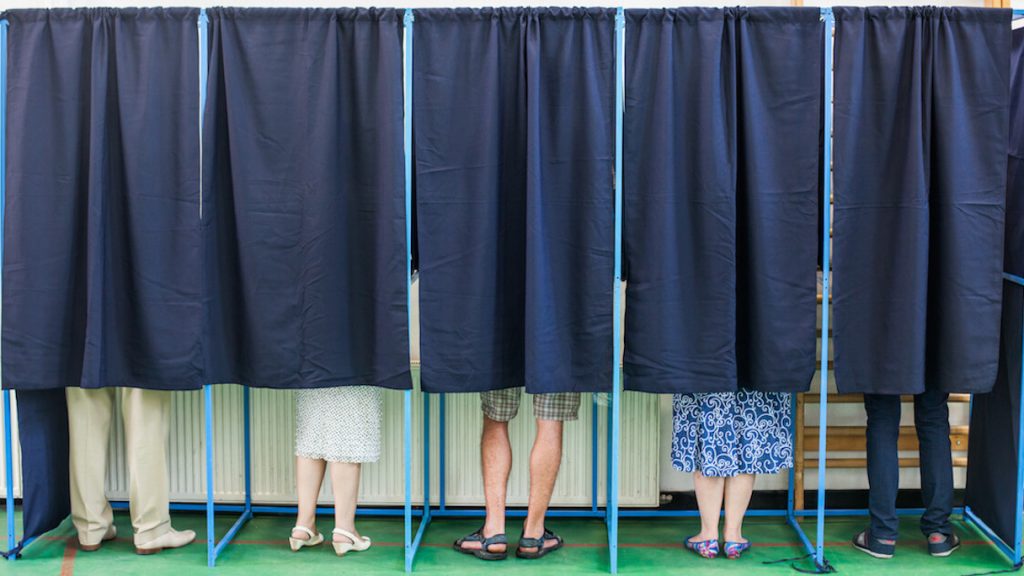
By Kate Westlund | Rewire
No matter when you last cast a ballot (or even if you just recently became eligible to vote) another election is right around the corner. Although most of the attention—and voter turnout—tends to be on presidential elections, local politics are just as, if not more, important.
If you think the only elections that matter happen every four years, guess again. Sure, the big guy at the top has a lot of power, but that power is far from absolute. A cornerstone of U.S. democracy is its system of checks and balances, ensuring no one person or group has too much power.
“The president is like the quarterback of a football team—he takes a disproportionate amount of credit when things go well, and a disproportionate amount of blame when things do not go well, but there are a lot of other actors,” said Matt Lindstrom, professor of political science and director of the Eugene J. McCarthy Center for Public Policy and Civic Engagement at the College of St. Benedict and St. John’s University.
In the 2018 midterm elections, there are 470 other actors to be exact: all 435 seats in the U.S. House of Representatives, and about a third of the seats in the Senate, are up for grabs.
Elections allow voters to take the pulse of the existing government and, if necessary, prescribe a change. And midterm elections are especially important because they can change the course of a presidency, you guessed it, mid-term.
Look and act locally
In addition to the open Congressional seats, there are state, county, and city elections across the country, from governors to county sheriffs to city council and schoolboard members.
“Local officials have so much influence on what we quite literally see, smell and hear every day,” Lindstrom said. “And if you think about people’s daily experiences—mobility, health, education, taxes—those are primarily locally decided and locally funded issues.”
Among other hot issues being discussed locally throughout the country:
- Debt-free college education
- Redrawing of congressional districts
- Cannabis reform
- Criminal justice reform
(In other words, no matter how apolitical or apathetic you are, local policy will affect you and your neighbors.)
What’s more, according to Lindstrom, “one of the unique aspects of the United States is that we have a federal system with a lot of dependence on individual states.”
“State and local officials implement nationally decided public policy, as well,” he said. “Or on the flipside, they’re resisting national public policies, a recent example being the case of sanctuary cities.”
What can you do?
With all of this on the line, what can you do? Fortunately, it’s easier to get involved than you might think.
The most basic thing you can do is register to vote (or update your voter registration if you’ve moved, changed your name or changed political parties since the last election), and then go vote! Lindstrom pointed out that, from a purely mathematical standpoint, the more local the election, the more your vote counts, which is cool to think about.
If you’re turned off by the partisanship in today’s politics, you can identify an issue or two that you care most about, do a little research, and vote for the candidate or candidates who most closely align with your views.
And if you’re firmly rooted in a political party, you can even help shape the agenda of that party by getting involved in the endorsement process by way of caucusing or voting in a primary. (A great place to start if you’re brand new is with the office of your secretary of state.)
If you want to step up your civic engagement beyond voting, an easy way is to donate—either your time, your money, or both—to a party, a candidate or a political activism group. Political campaigns are generally lean operations and are always happy to have the help, whether it comes in the form of a small one-time financial contribution or a weekend out door knocking.
You can also speak your mind at city council meetings. Local governing bodies always leave time on the agenda for citizens to talk about stuff the council is deliberating about that day, as well as things that aren’t on the agenda.
There are lots of ways (and reasons) to stay involved beyond presidential elections.
“It’s important to get off social media and show up in the council rooms, at the party conventions, and at the ballot box,” Lindstrom said.
So take a break from Twitter, study up on the issues and go out and make your voice heard.
Watch America From Scratch
America From Scratch is part of In It Together, TPT’s new initiative aimed at engaging Minnesotans in conversations that support and sustain a healthy democracy.
![]() This article originally appeared on Rewire.
This article originally appeared on Rewire.
© Twin Cities Public Television - 2018. All rights reserved.
Read Next



